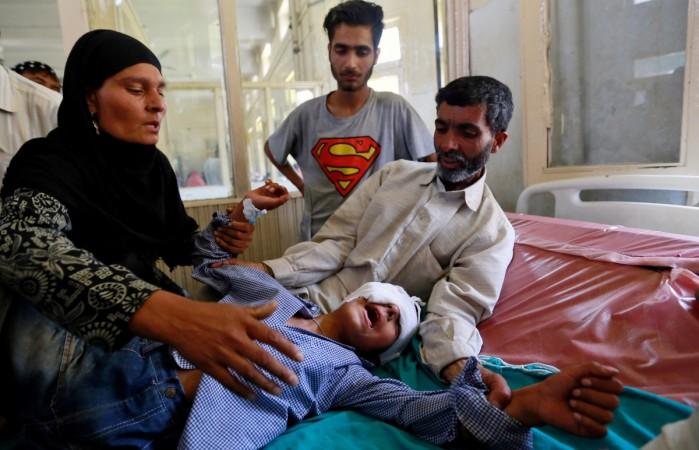
The Centre has not entirely ruled out the use of pellet guns in Kashmir, while suggesting that alternatives to the weapon should be opted for. Senior government officials have said that the pellet guns will be used in the "rarest of rare" cases.
"There will be no blanket ban on the use of pellet guns. At the most, it will be used in the rarest of rare cases. We cannot make our security forces a sitting duck," a senior government official told the Hindu.
The use of pellet guns in the Valley came under increasing public scrutiny following reports of hundreds of eye injuries caused after security forces employed them to control violent protests. Opposition members, including former Jammu and Kashmir Chief Minister Omar Abdullah, had earlier this month submitted a memorandum to Prime Minister Narendra Modi requesting immediate suspension of the use of pellet guns.
Home Minister Rajnath Singh during his two-day visit to Kashmir on Aug. 24-25 had also said an alternative to pellet guns will be given to security forces in the coming days. "These guns were earlier considered non-lethal, but some incidents have taken place. We formed an expert committee a month ago which was expected to give report in two months, but it will be coming very soon," he had said.
A expert panel set up by the Centre is believed to have zeroed in on using a less lethal weapon that temporarily immobilises the target, such as the chilli-based ammunition, 'PAVA shells' (pepperballs). However, an affidavit submitted by the Central Reserve Police Force (CRPF) said 'PAVA shells' were already in use.
CRPF personnel fired 800 shells of hot PAVA projectiles between July 8 and Aug. 11 in Kashmir, according to the affidavit submitted on Aug. 17 by Atul Karwal, the Inspector General CRPF (Srinagar). The affidavit was submitted in response to a PIL filed by J&K High Court Bar Association, seeking a ban on the use of pellet guns in the Valley.
For over a year, the 'PAVA shells' have been under trial at the Indian Institute of Toxicology Research, a constituent laboratory of the Council of Scientific and Industrial Research (CSIR) in Lucknow. Incidentally, its full development has come during the time of the Kashmir unrest.
The Tear Smoke Unit (TSU) of the Border Security Force (BSF) in Gwalior is also said to have been tasked immediately with bulk production of the shells that must exceed 50,000 rounds.
















